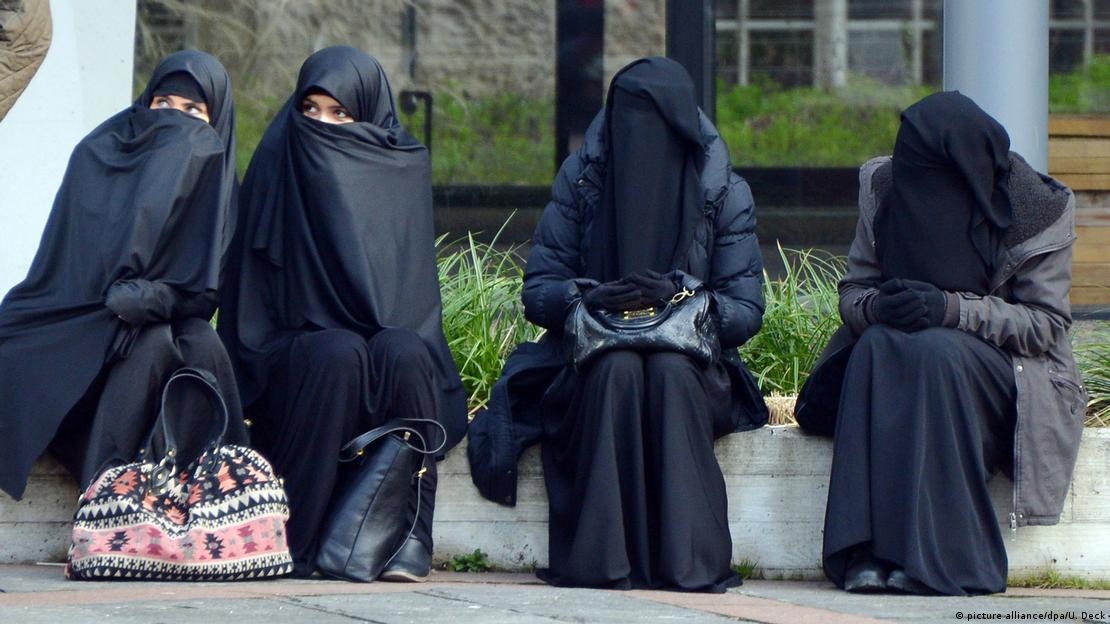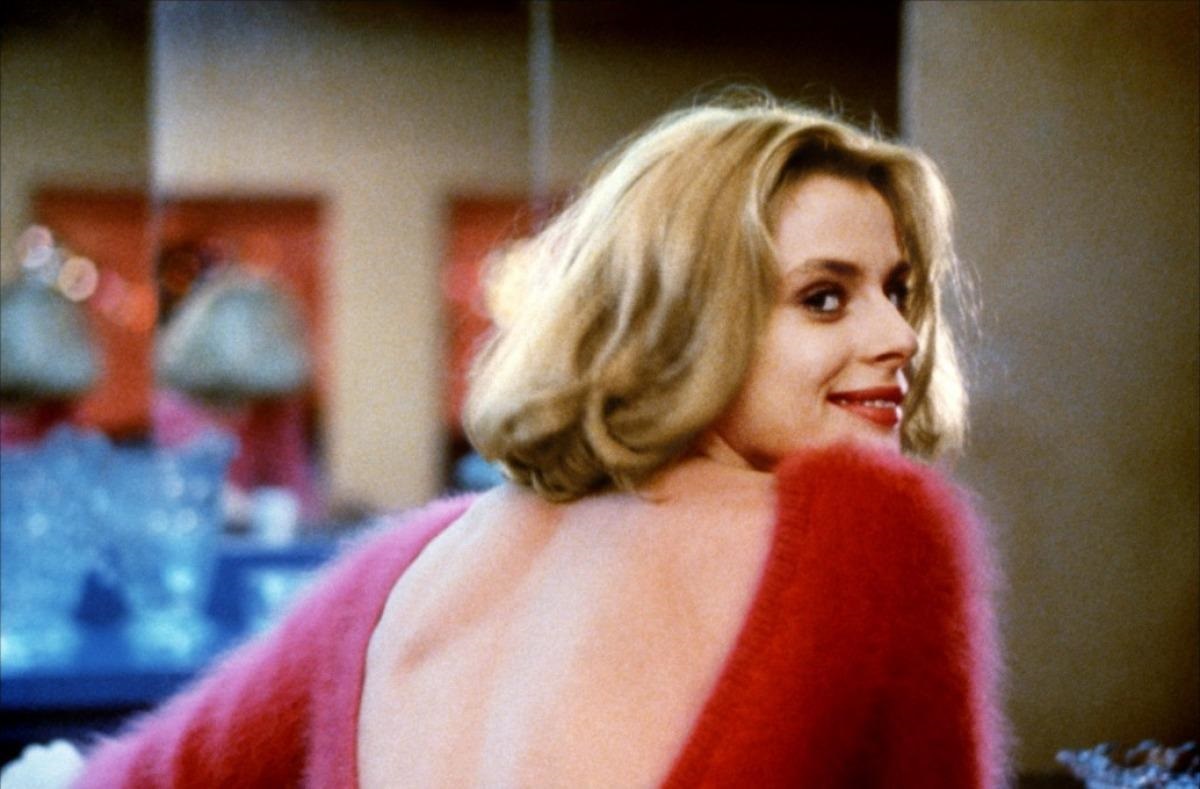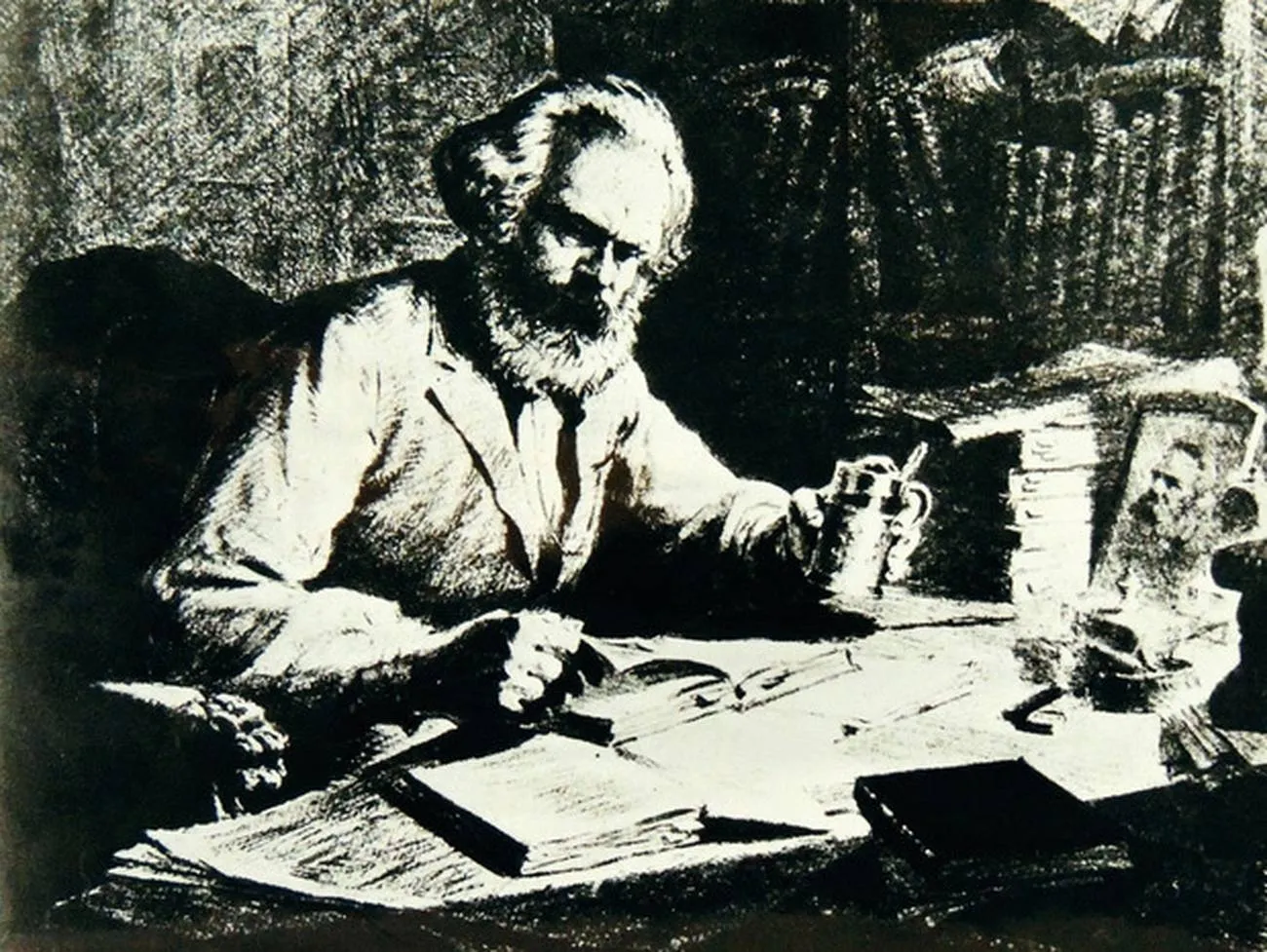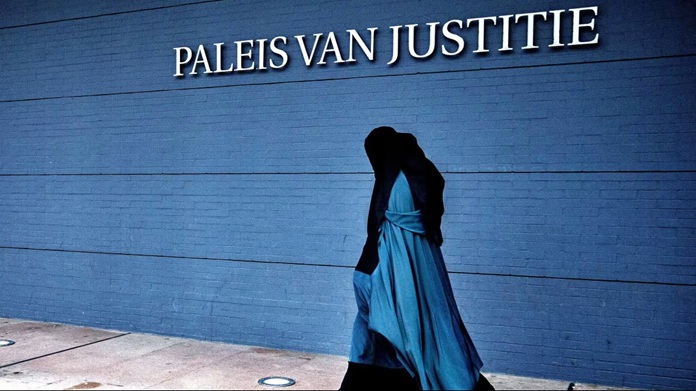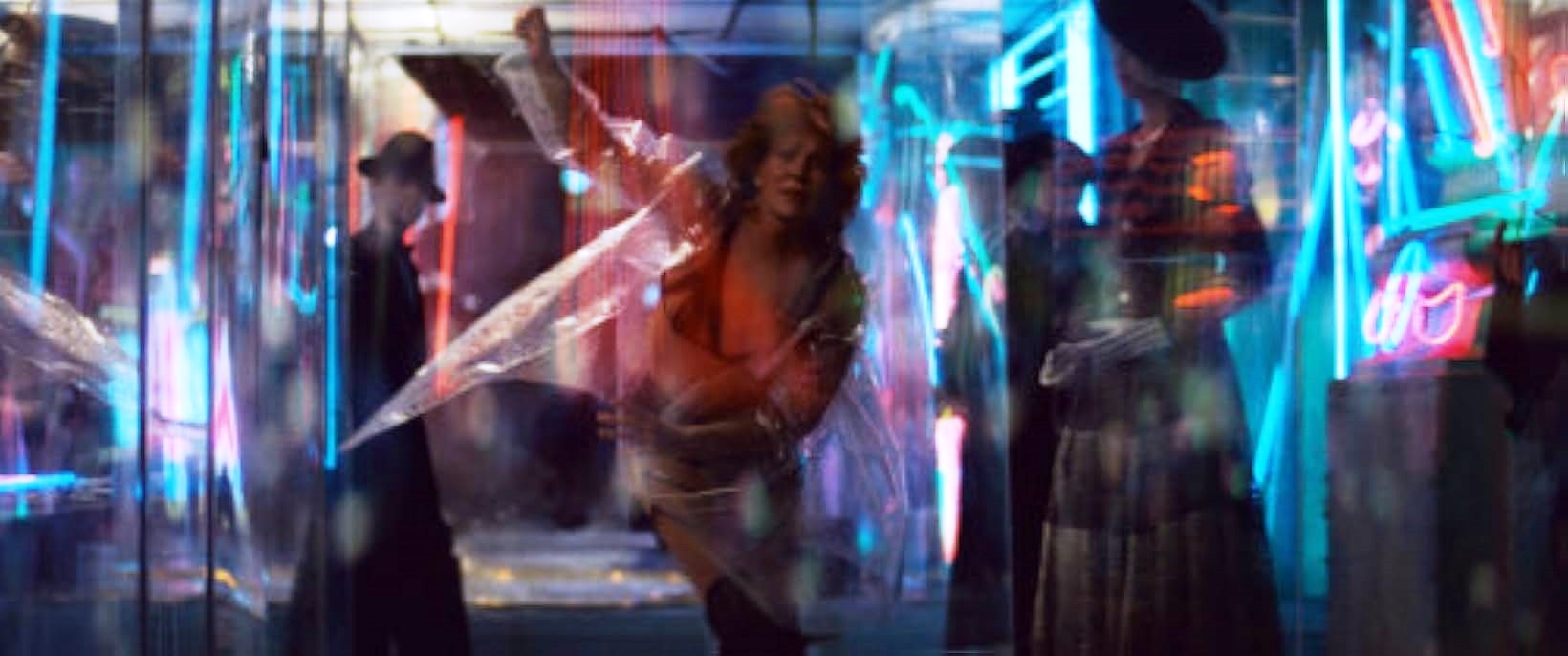
Like everybody in the English-speaking world, the only movie I’d watched Franka Potente in was The Bourne Identity (2002), although I’d heard of her famous German film Run Lola Run (1998).
By Emad Aysha
So, I finally watched that movie, albeit dubbed in English, and I was very pleasantly surprised. I thought it was some dystopian sci-fi feature, with Franka Potente running for her life as an artificially red-haired rebel in a semi-military outfit.
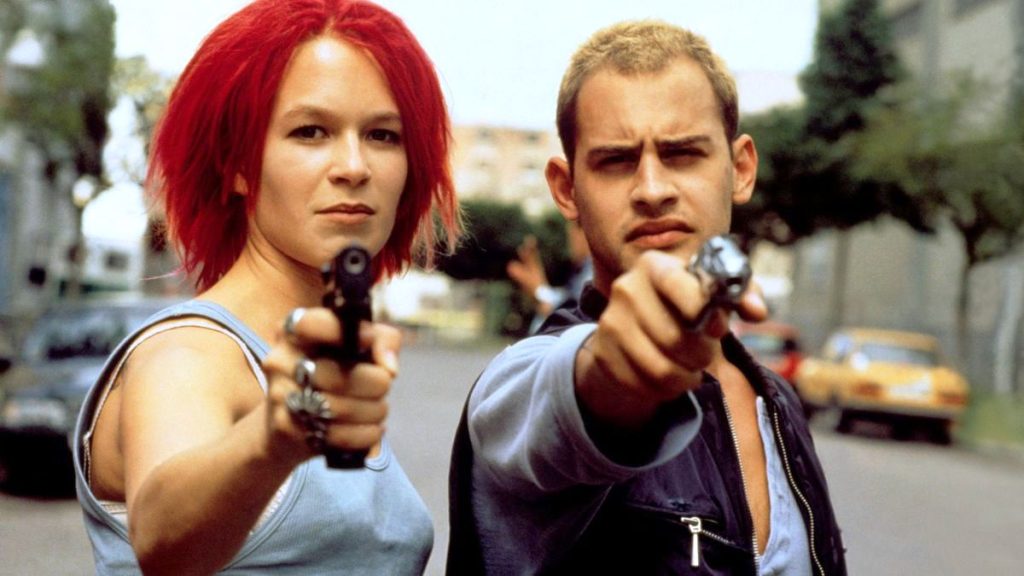
ROLE REVERSAL: A screenshot from 'Run Lola Run' with Franka Potente and the soon to be mentioned Manni in one of his many failed scenarios. Third time is always a charmer.
Instead, it’s a hilarious what-if existential movie that replicates time-travel scenarios but in a funky fashion. And, to be honest, it is a ‘bit’ dystopian in the way it portrays Germany in the post-post-Cold War era. But more on that below.
The movie begins with Lola getting a desperate phone call from her boyfriend Manni (Moritz Bleibtreu), whose bleached blond hair is a stark contrast to his words as he cries to her about how he fumbled a money delivery to the tune of 100,000 Deutschmarks – illicit diamond trade.
Manni’s only got 20 minutes to come up with the cash, and he’s adamant about sticking up a nearby supermarket, or else his employer will massacre him. That’s why Lola is on the run, desperately trying to get him the cash before all hell breaks loose.
Her immediate instinct is to run to her father, a banker, and she has all these human obstacles to get through along the way, and when she bumps into somebody, we’re given a snapshot of their life from that point, with their fate either being grand or abysmal.
That includes everything from baby-stealing to happily married-ever-after to overdosing on drugs to dominatrix relationships. Lola fails to get the money, and her erstwhile father, a man with his troubles (extramarital affair), finally confesses to Lola that he isn’t her father and he’s glad for it too!
His wife isn’t faithful to him, and he has tolerated the pre-born Lola out of a misplaced sense of duty as a husband, but now he wants to live for himself. Lola goes empty-handed to Manni while he’s robbing the market, and she helps, only to get shot in the heart by a jittery cop!
That’s when the movie rewinds to the phone call sequence at the beginning and starts over, this time with Lola robbing her dad’s bank and arriving at Manni's just in time, only for an ambulance to run him over. An ambulance she’d bumped into in her previous incarnation.
Then a third re-run and this time Lola fails to get to her father on time, he’s out for a meeting with a client – a guy she’d bumped into before – and she finds herself in front of a casino and she wins the money by darn good luck.
Manni, for his part, bumps into the bum who’d got his money (he left it on a train), so everything turns out okay in the end, and there was no need for her running to begin with!
The camera work is excellent, combining low-res documentary-style shots in certain places, proper perspective shots from above to show the layout of the city as she runs for her life, and cartoonish interludes and those snapshots of people’s bisecting lives.
The music is also top-notch, the equivalent of Brit pop in the German mode, much like the killer soundtrack for Trainspotting (1996); TBR Schmitt noticed the same thing in his supercool review.
But all of this wouldn’t have worked without Franka Potente. She’s a healthy, attractive girl, but more than that, she’s a born rebel. That’s why she was so good in Bourne Identity (up against the living mummy of Matt Damon) with a lot of emotion in her movements.
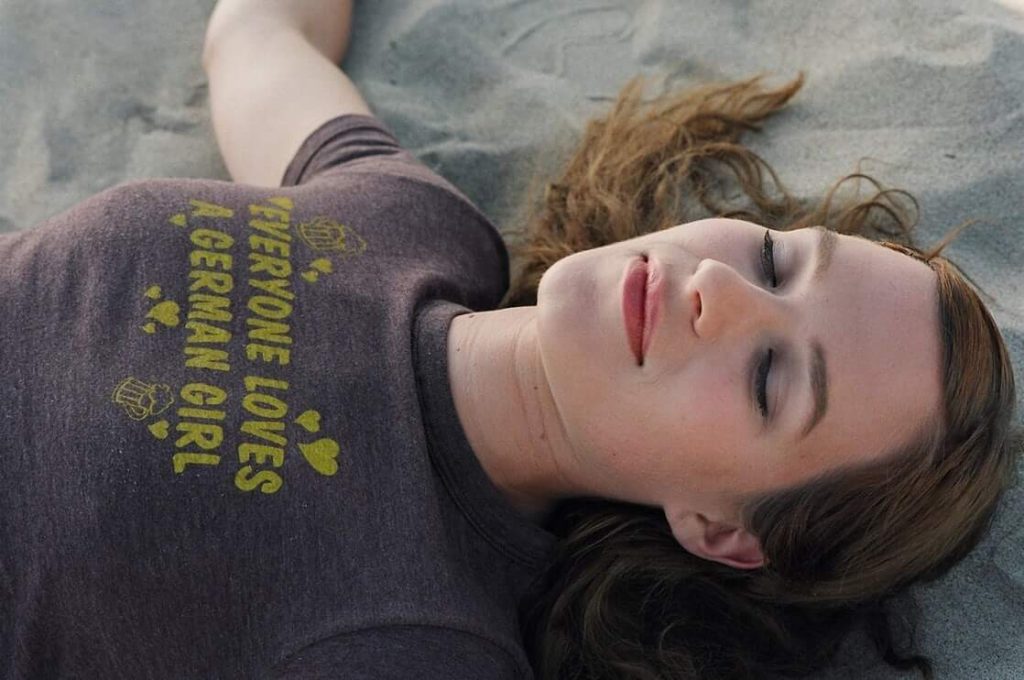
GIRL UNFURLED: Franka Potente proves German girls are worth the trouble, even if she does look Italian!
On closer inspection, you find she has boyish features with a strong chin and nose, but very sensitive eyes and lips, and an expressive demeanour.
The close-ups bring this out, which multiplies the sense of desperation in the movie, but she has very expressive features. If I didn’t know she was German, I’d think she was Italian.
The movie is a kind of rebellion against the surreal rat race that Germans have found themselves in. (When Lola screams, glass shatters everywhere, which breaks the seriousness.)
So many characters are obsessed with money, but Lola is the only person willing to give up money for her boyfriend, probably the only person who loves her in the whole world. (They meet at a ‘crossroads’, literally).
Her father is a self-indulgent jerk, and a client tells him he’s too busy working to get married. In one scenario, her dad’s mistress gets pregnant by another man because he doesn’t pay enough attention to her.
In one of the most moving scenes in the movie, Lola holds the hand of a patient in the same ambulance, and it stabilises his heart. Everybody craves attention in this crazy story.
There are a lot of self-indulgent homemakers, too, and there’s the cartoon guy with the dog on the stairs who won’t get out of the way for Lola. The only selfless guy, ironically, is the bum who gives up the money in the end to Manni.
He gets Manni’s gun in exchange, honour as the codeword for Germans. Note also the car crash, a black car into a white car, but the white one is full of thugs, not unlike the diamond dealer Manni works for.
Old industrial Germany is giving way to new commercial Germany. Thank heavens Manni learns that it’s not worth defining yourself in terms of money, from the bum, but also from the blind woman who doesn’t ask for her phone card back.

TOO HOT TO HANDLE: Last time you see her in the Bourne franchise as Marie. I blame Matt Damon personally. The bullet meant for him got her instead.
The movie has a lot in common with the dystopian satirical masterpiece Brazil (1985), and straightforward comedies like It’s a Mad Mad Mad Mad World (1963) or Rat Race (2001). But again, in a funky, indie movie German format.
But why no proper German dystopian SF? Is that another victim of ‘self-indulgence’?!

